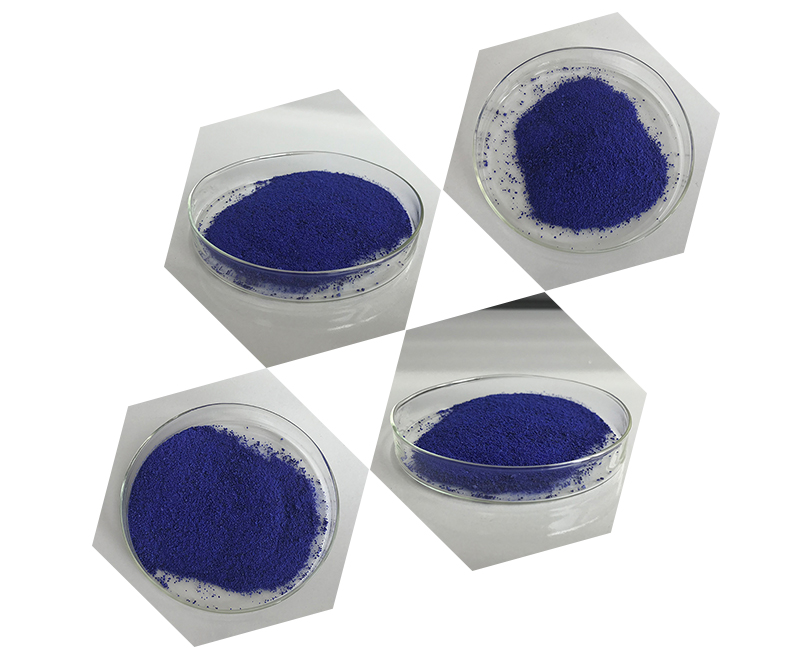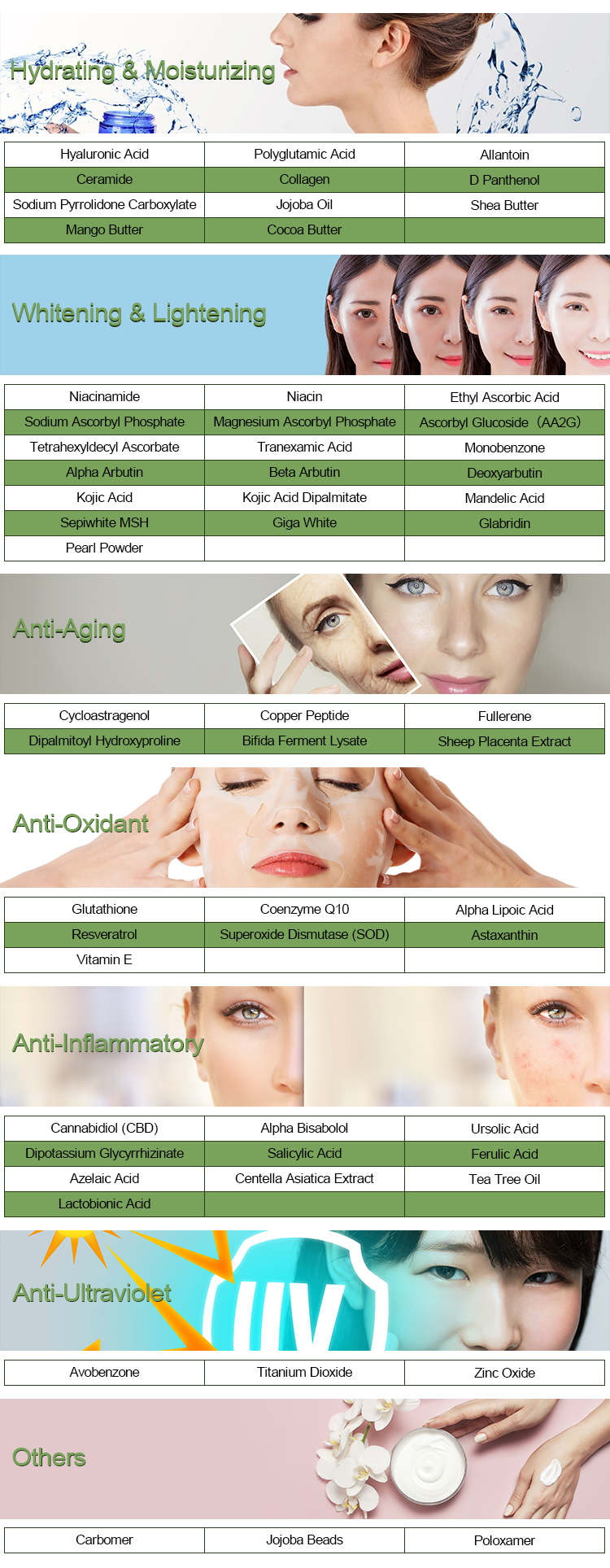Copper peptide is a group of bioactive compounds that consist of copper ions (Cu²⁺) bound to small peptides. They are widely known for their role in promoting wound healing, collagen production, skin regeneration, and anti-aging. There are several types of copper peptides, with GHK-Cu being the most studied and popular. Here’s an overview of the key types of copper peptides and their differences:
1. GHK-Cu (Glycyl-Histidyl-Lysine Copper)
Structure: A tripeptide composed of glycine, histidine, and lysine with a copper ion attached.
Primary Benefits:
- Stimulates collagen production and skin regeneration.
- Improves wound healing by promoting tissue repair.
- Enhances the production of glycosaminoglycans (like hyaluronic acid).
- Has anti-inflammatory and antioxidant properties.
Uses: Widely used in skincare for anti-aging, acne, and promoting skin rejuvenation. It’s also used in hair regrowth treatments.
Key Mechanisms: GHK-Cu binds to cell surface receptors and activates gene expression related to tissue remodeling, wound healing, and cellular repair.

2. Copper Tripeptide-1 (GHK-Cu Variant)
Structure: This is a slightly modified version of GHK-Cu but shares similar properties.
Primary Benefits:
- Promotes collagen and elastin synthesis, helping improve skin elasticity.
- Reduces the appearance of fine lines and wrinkles.
- Increases skin density and thickness.
Uses: Commonly found in skincare products targeting aging and skin regeneration.
3. Copper Peptide Complex (Copper-Peptide Complex)
Structure: This refers to a formulation where multiple peptides are complexed with copper ions, and the composition can vary depending on the brand or product.
Primary Benefits:
- Anti-aging effects similar to GHK-Cu but with a more comprehensive effect due to the combination of peptides.
- Enhances skin healing, reducing scarring and improving skin tone and texture.
Uses: Used in both skincare and hair care products to improve skin health and stimulate hair follicle regeneration.

4. Copper Tetrapeptide-7
Structure: A tetrapeptide (four amino acids) with a copper ion bound to it.
Primary Benefits:
- Anti-inflammatory properties help reduce redness and swelling.
- Stimulates collagen production, improving skin elasticity and firmness.
- Promotes overall skin regeneration.
Uses: Often used in anti-aging and wound healing formulations. Can also be found in products targeting sensitive skin due to its calming effects.
5. Copper Tripeptide-2 (also known as CG-CRG)
Structure: A tripeptide with a copper ion attached.
Primary Benefits:
- Acts as a signaling molecule to promote the health of hair follicles, making it beneficial for hair growth.
- Stimulates the production of extracellular matrix components like collagen, fibronectin, and laminin.
- Helps repair damaged tissues and reduces inflammation.
Uses: Mostly found in hair growth products, though it can also be used in skincare for its healing and regenerative properties.
Key Differences:
- Peptide Length: GHK-Cu is a tripeptide, while other variants like Copper Tetrapeptide-7 are longer peptides. Longer peptides may have broader effects on tissue repair and regeneration.
- Specificity of Action: GHK-Cu is most known for its collagen synthesis and skin repair benefits. Other peptides like Copper Tripeptide-2 are more commonly used for hair growth, while Copper Tetrapeptide-7 is often included for anti-inflammatory properties.
- Targeted Benefits: Depending on the composition, copper peptides can target different skin concerns, such as fine lines, wrinkles, inflammation, hair loss, or wound healing.

Application in Skincare and Haircare:
- Skincare: Copper peptide is commonly included in serums, moisturizers, and masks for their anti-aging and healing effects. They help improve skin texture, reduce signs of aging, and boost the skin’s natural repair processes.
- Haircare: They are also found in hair serums and shampoos, where they stimulate hair follicle activity, promote hair growth, and reduce hair thinning.
Conclusion:
Copper peptides are versatile and potent ingredients in both skincare and haircare. The specific type of copper peptide you use can depend on your goals—whether it’s promoting skin elasticity, enhancing collagen production, or stimulating hair growth. GHK-Cu remains the most popular due to its extensive research and proven benefits.
